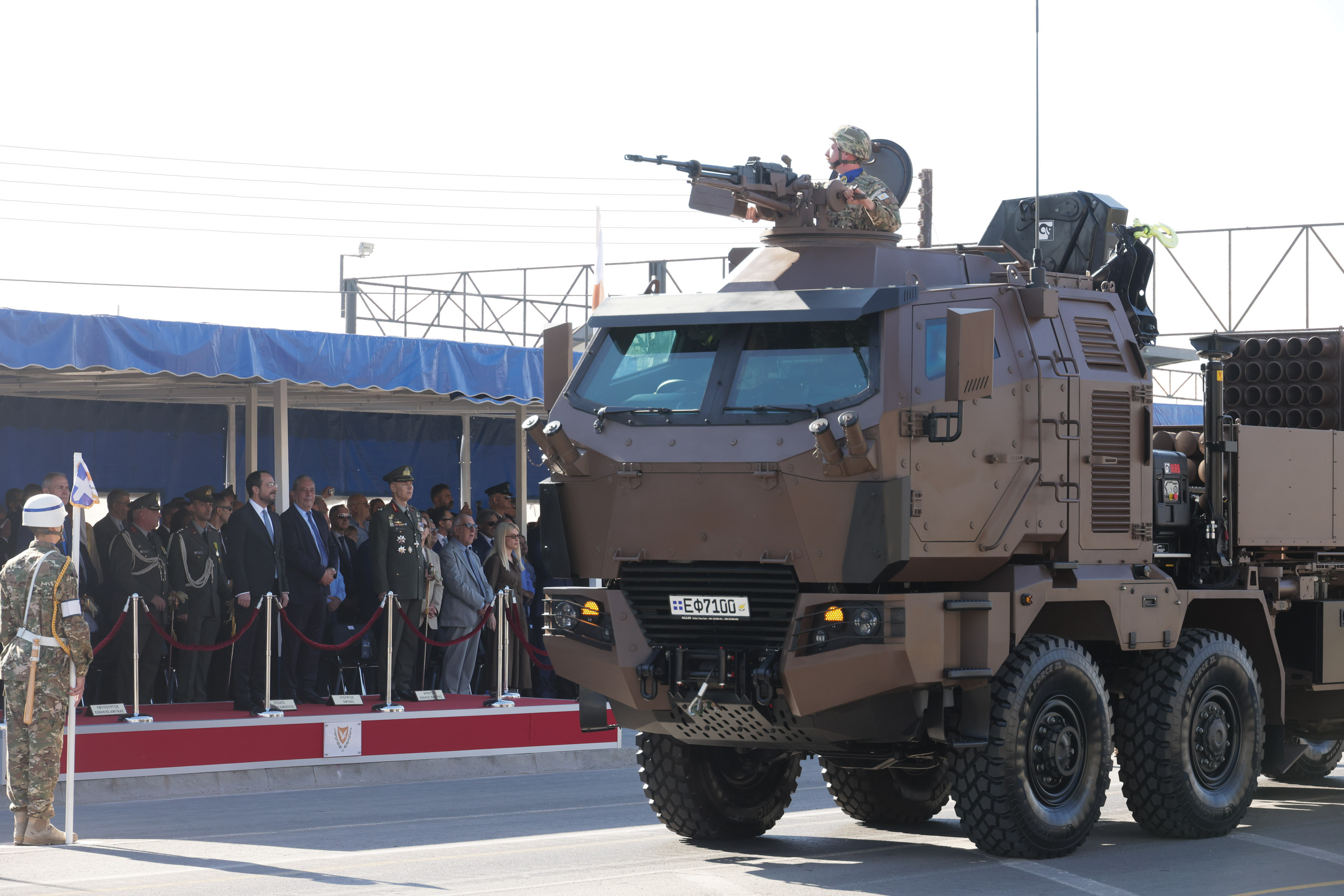For too long, the Republic’s defence spending was rather random. This was partly because only a few countries would sell arms to Cyprus, mainly Russia and France, and partly because presidents were more interested in how arms purchases would look on display at the October 1 military parade.
There was much political capital to be made from new tanks, artillery guns and assault choppers being shown at the parade. The purchase of the Russian S300 missiles, pictures of which were broadcast every night on the television news before they had even arrived, helped Glafcos Clerides win a second term. The missiles never arrived, because Turkey threatened to take them out, and some 300 million Cyprus pounds were completely wasted.
Things have changed in the last few years as the US has lifted its arms embargo for non-lethal arms equipment while improved relations with Israel have meant Cyprus can buy weaponry from there. Most recently, it has purchased the Tamnava multiple rocket launcher from Serbia and the Barak MX air defence system from Israel. The purchase of the latter sparked a strong reaction from the Turkish government but not on the scale of the S300 missiles.
Is there more coherent thinking in the recent arms purchases? The government, since 2023, has been setting aside an amount in the region of €170m in the annual budget for defence spending, but it will now also be able to use €1.2 billion from the EU’s Safe programme over the next few years – approval has already been given.
Cyprus has upgraded its defence profile, not just by increasing its arms spending, but by developing its bilateral defence cooperation with many other countries both in Europe and in the Middle East. Cooperation involves military-to-military exchanges, joint exercises and security assistance. In the next two years, the Mari naval base will be upgraded while the Andreas Papandreou airbase in Paphos will be expanded and modernised as part of the military cooperation with the United States.
Cooperation with other countries has helped Cyprus formulate a more coherent defence plan and structure, although, because of its very small size, it will remain defensively weak. No politician would ever admit this. On the contrary, President Nikos Christodoulides has been extolling the government’s defence and security effort as the greatest of the last decade.
“The continuous upgrading of the National Guard and strengthening of our power of deterrence constitutes a top priority for our government,” he repeated last week. Like most of his predecessors, he is perfectly entitled to try to exploit the upgrading of defence and security by his government but to claim our power of deterrence has been strengthened is not responsible. Strengthened in relation to what it was, which was non-existent?
Is a sense of perspective too much to ask for from our politicians when they talk about our defence capability?






Click here to change your cookie preferences